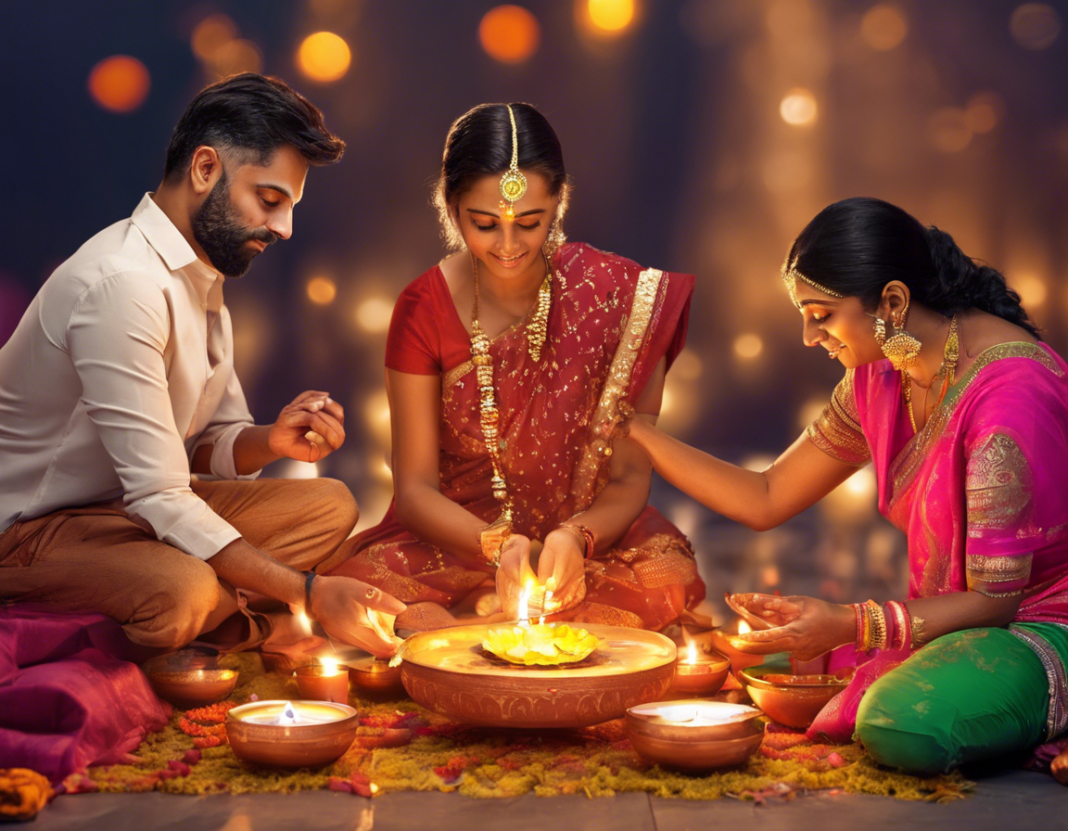Introduction
Diwali, also known as the Festival of Lights, is one of the most widely celebrated festivals in India and among Hindus worldwide. It signifies the victory of light over darkness and good over evil. Central to the Diwali festivities are the various pujas (rituals) that people perform to seek blessings, prosperity, and good fortune.
In 2023, Diwali falls on 21st October. As per tradition, families clean and decorate their homes, wear new clothes, exchange gifts, and light oil lamps or candles to commemorate the occasion. One of the key aspects of Diwali celebrations is performing the Diwali puja, a ritual worship of deities that involves prayer, offerings, and ceremonies.
Diwali Puja Schedule
The auspicious timing for performing the Diwali puja is crucial for ensuring its efficacy and success. The Diwali puja muhurat (auspicious time) for 2023 is as follows:
- Diwali Puja Date: 21st October 2023
- Puja Muhurat Begins: 06:53 PM
- Puja Muhurat Ends: 08:57 PM
- Duration: 2 hours 3 minutes
It is advisable to perform the Diwali puja during this auspicious time to maximize the benefits and positive energy generated by the ritual.
Diwali Puja Rituals
The Diwali puja involves several rituals and ceremonies that are performed with devotion and reverence. Here is a step-by-step guide to conducting the Diwali puja:
1. Preparation**
- Cleanliness: Ensure that the puja area is clean and free from clutter.
- Decorations: Adorn the puja space with flowers, rangoli, and lights.
- Puja Thali: Arrange all necessary items for the puja, including diyas, incense sticks, sweets, fruits, and offerings.
2. Ganesh-Lakshmi Puja**
- Ganesh Puja: Begin the puja by worshiping Lord Ganesh, the remover of obstacles.
- Offer durva (bermuda grass), modak (sweet), and light a diya.
- Lakshmi Puja: Invoke Goddess Lakshmi, the deity of wealth and prosperity.
- Offer flowers, incense, sweets, and light lamps to the Goddess.
3. Mantra Chanting**
- Recite Diwali special mantras and shlokas to invoke blessings and prosperity.
- Om Shreem Mahalakshmiyei Namaha and Om Shri Maha Ganadhipataye Namaha are commonly chanted mantras.
4. Puja Aarti
- Conclude the puja with the rendition of aarti to offer prayers and gratitude.
5. Distribution of Prasad
- Share the prasad (blessed food) with family members and guests to seek blessings.
6. Celebrate with Family
Celebrate the festival with family and friends, exchange gifts, and partake in festive meals to spread joy and happiness.
Frequently Asked Questions (FAQs)
1. What is the significance of Diwali Puja?
The Diwali puja is performed to seek blessings from the deities for prosperity, wealth, and well-being. It is believed to bring happiness and success to the worshippers.
2. Can the Diwali puja be performed at home?
Yes, the Diwali puja can be performed at home by following the prescribed rituals and mantras. It is a common practice for families to conduct the puja in their household.
3. What items are essential for the Diwali puja?
Essential items for Diwali puja include diyas (lamps), incense sticks, flowers, sweets, fruits, holy water, idols or images of deities, and a puja thali.
4. What are the benefits of performing the Diwali puja?
Performing the Diwali puja is believed to bring prosperity, wealth, peace, and happiness to the worshipper and their family. It is also said to remove obstacles and negativity from one’s life.
5. Can non-Hindus participate in the Diwali puja?
Yes, people of all faiths and backgrounds are welcome to participate in the Diwali puja as a gesture of unity, harmony, and cultural exchange. It is a time for sharing joy and spreading positivity.
6. Are there any specific dietary restrictions during Diwali puja?
There are no specific dietary restrictions during the Diwali puja. However, it is customary to offer and consume vegetarian food as a sign of purity and auspiciousness.
7. How can one make their Diwali puja more special?
To make the Diwali puja more special, one can decorate the puja area with flowers, candles, and rangoli, chant mantras with devotion, invite friends and family to participate, and donate to those in need as a gesture of goodwill.
8. Can the Diwali puja be performed in the morning?
While the evening is considered the most auspicious time for Diwali puja, it can also be performed in the morning if necessary. The key is to conduct the puja with sincerity and devotion to receive blessings.
9. What is the role of firecrackers in Diwali celebrations?
Firecrackers are traditionally lit during Diwali to symbolize the victory of light over darkness and to ward off evil spirits. However, in recent years, there has been a growing awareness of the environmental impact of fireworks, prompting many to opt for eco-friendly celebrations.
10. Can the Diwali puja be performed collectively in a community setting?
Yes, the Diwali puja can be performed collectively in a community setting, such as in temples or social gatherings. It fosters a sense of togetherness, unity, and shared spirituality among participants.

